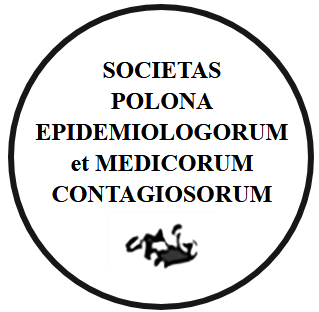Infections caused by Slackia exigua: A single-center experience and literature review
1
Department of Medical Microbiology, Medical University of Warsaw
Katedra i Zakład Mikrobiologii Lekarskiej, Warszawski Uniwersytet Medyczny
Submission date: 2024-09-24
Acceptance date: 2024-02-02
Online publication date: 2024-04-17
Publication date: 2024-06-07
Corresponding author
Anna Majewska
Katedra i Zakład Mikrobiologii Lekarskiej Warszawski Uniwersytet Medyczny ul. Chałubińskiego 5, 02-004 Warszawa
Katedra i Zakład Mikrobiologii Lekarskiej Warszawski Uniwersytet Medyczny ul. Chałubińskiego 5, 02-004 Warszawa
Przegl Epidemiol 2024;78(1):3-15
KEYWORDS
ABSTRACT
Slackia exigua, originally classified as Eubacterium exiguum, is a Gram-positive, asaccharolytic, rod-shaped anaerobic bacterium. The virulence factors of S. exigua have not been accurately identified. The objective of the study is to evaluate the pathogenic potential of S. exigua by presenting the cases of infections diagnosed at our hospital laboratory. Additionally, we reviewed the literature to summarize the experience with S. exigua infections to clarify, in the light of current knowledge, the clinical picture, diagnostic, and therapeutic issues related to this anaerobic bacterium. We reported eleven severe human infections caused by S. exigua. All patients required hospitalization. Nine of the cases involved chronic infections in the stomatognathic system, in two patients, skin infections were diagnosed.
As it is known, S. exigua is a component of the human microbiota; however, it can cause opportunistic infections, particularly in the case of translocation outside its natural habitat. A critical literature analysis revealed that S. exigua can be responsible for bacteremia, meningitis, tissue necrosis, periprosthetic joint infection, and osteomyelitis. Several studies have been published regarding the determination of drug susceptibility of S. exigua. The isolated strains were susceptible to most antibiotics used for the treatment of anaerobic infections. The interpretation of antimicrobial susceptibility testing for some slow-growing in vitro, infrequently causing infections anaerobic bacteria, such as S. exigua, is based on The European Committee on Antimicrobial Susceptibility Testing (EUCAST) additional guidance taking into account the determination of drug susceptibility for groups of microorganisms for which cut-off values have not been developed.
We process personal data collected when visiting the website. The function of obtaining information about users and their behavior is carried out by voluntarily entered information in forms and saving cookies in end devices. Data, including cookies, are used to provide services, improve the user experience and to analyze the traffic in accordance with the Privacy policy. Data are also collected and processed by Google Analytics tool (more).
You can change cookies settings in your browser. Restricted use of cookies in the browser configuration may affect some functionalities of the website.
You can change cookies settings in your browser. Restricted use of cookies in the browser configuration may affect some functionalities of the website.





